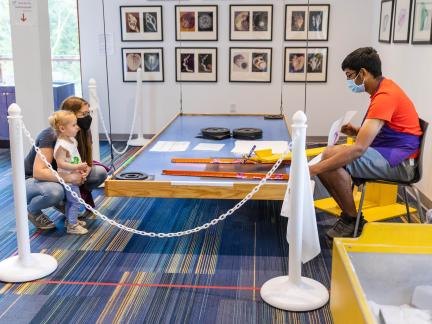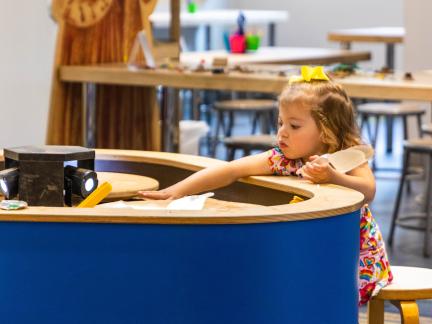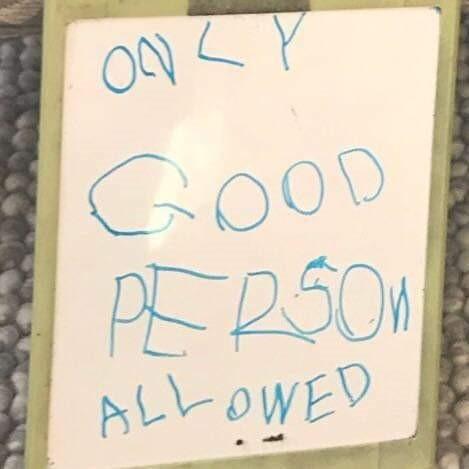Update from our CEO | July 2023
Dear Friend of the Museum,
I said Yes to something recently but was not happy about it: the creation of the Museum’s first-ever Visitor Code of Conduct. You may notice it on our website. It is rules. Rules about how we expect adults to behave when visiting Discovery Museum. We’ve not needed one for the first 40+ years of our existence, when we served millions of kids and their families. And we are not the only museum that has felt the need to take this step; sadly, it has become common among our peer institutions nationally.
Creating these rules is a response to the current state of the world around us. A world where civility, empathy, respect for others, how we treat each other—aka the golden rule—have deteriorated. A world still impacted by a multi-year pandemic. We understand that a visit with children to a public place such as a museum can be both joyful and stressful. We make these rules about behavior reluctantly.
There are a multitude of good reasons why we should all "act like adults,” but I want to talk about the one closest to our hearts: the impact of adult behavior on kids. It is a simple idea, but perhaps one we have not paid enough attention to: much of what children learn is from observing adults.
Debates exist among researchers on the balance between innate and learned behaviors, but the impact of unconscious learning—when children watch or listen to adults and “learn” that behavior—is agreed to be incredibly impactful from the earliest ages. Even before they can speak, children are learning by observing the adults around them. When how we act at a public place such as the Museum is less than exemplary, there are many children there to witness and learn from it, not just our own.
I think kids understand being treated nicely or badly by others at a pretty early age. For example, my young friend Henry once made himself a blanket fort and placed this sign at its entrance:
To Henry, a good person would treat him with respect, listen to his point of view, respect his emotions, and work with him to resolve any differences. Henry is the child of parents who introduced him to the idea of other perspectives, cultivated his sense of empathy, and began to teach him the basics of problem-solving with others. They perhaps also helped Henry realize they were imperfect and tried to explain when they were impatient, or criticized others, or displayed some anger. If I were asked to edit Henry’s sign, I might suggest it be adjusted to read, “Only those who strive to be a good person allowed.”
I think Henry’s sign, possibly with my suggested tweak, touches on a goal we might all have for ourselves. I look forward to the day when we can remove the Visitor Code of Conduct from the Discovery Museum website.
Am I overreacting? Have we reached a “new normal” in our levels of tolerance and patience in dealing with each other? I very much welcome your feedback, questions, and suggestions at ngordon [at] discoveryacton.org (ngordon[at]discoveryacton[dot]org).
Be well,
Neil Gordon
CEO
P.S. If the Code of Conduct gets removed during my tenure, it will have to be soon. I have announced that I will retire at the end of this year. More to come on that topic, but suffice to say I have enjoyed every day of the last 14 years at this great place and am very proud of what our dedicated and talented staff has accomplished.
Importantly, the Board of Directors has selected our current Chief Development Officer, Marie Beam, to become Discovery Museum’s next CEO on January 1, 2024. I leave this place in better hands. More on that later, as well.




